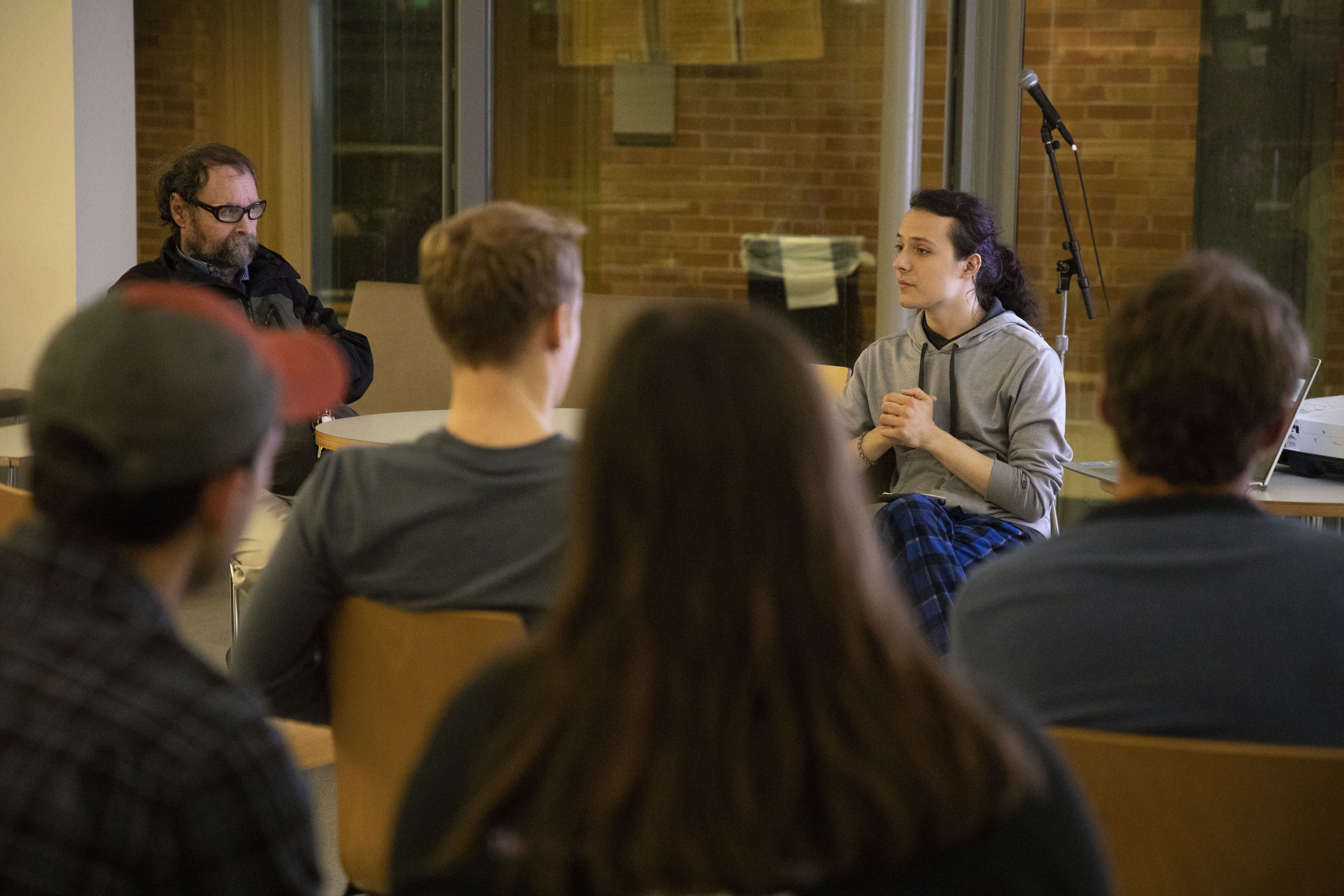Crow Chloupek, AS QRC Advocacy Coordinator, led the participants in a discussion about struggles for disabled individuals and how to avoid ableism. Ella Banken//AS Review
By Sydnee Smith
Alli Johnson, AS Disability Outreach Center educational programming coordinator, wants students to know that disability has no set definition and isn’t always visible to the eye.
The DOC hosted an event, Disability 101, on Tuesday Nov. 13. This event was to help students understand disabilities more.
The three main misconceptions Johnson mentioned were that people with disabilities are special and should be treated differently, disability is a personal tragedy and people with disabilities are brave for living their lives with a disability.
Johnson said how this went back to ableism, the discrimination or prejudice against individuals with disabilities. Some examples she cited were planning events that aren’t accessible, lack of infrastructure for disabled individuals in public spaces and professors not using closed captioning on in-class videos.
Ableism also goes into the language people use, Johnson said. Lame, insane, psycho and spaz are some of the examples she mentioned of everyday words that can be used in a harmful way. Johnson also said she isn’t telling people to change the way they speak, but think about their word choice more carefully.
The event also focused on the ways society thinks of disability as an afterthought. Johnson spoke about how wheelchair ramps are often in the back of buildings for aesthetic purposes or how web design isn’t usually accessible to people with dyslexia.
Etiquette was a big topic that was also brought up. Johnson said mobility devices can be extensions of one’s personal space. Her tips for interacting with individuals with mobility devices are be sensitive about physical contact, think before you speak, ask before helping, don’t guilt others into participating in physical activities and respond graciously to requests.
Johnson stressed disability is the forgotten diversity group a lot of the time and her goal was to inform and encourage people about disability. She noted the negative contexts around disability and wishes to ease that in some way.
Crow Chloupek, the Queer Resource Center advocacy coordinator, opened the floor to a general discussion at the end of Johnson’s presentation. Chloupek first asked what people misunderstand about disability. The discussion opened into how people with disabilities don’t all want the same treatment.
The problems that people with disabilities face in the United States was also was brought up. Pushing people with disabilities out of the conversation about disability was a main topic discussed among the attendees. Chloupek and Johnson also mentioned the lack of accommodations people with disabilities are offered, they usually have to ask and fight for them.
Chloupek ended by mentioning that understanding disabilities is so important because it helps to humanize people with disabilities and bring their issues and problems they face to society.

